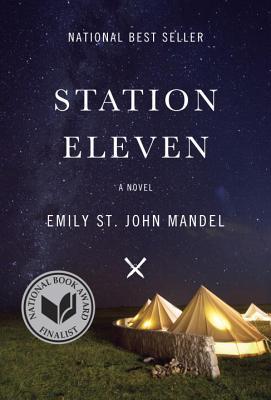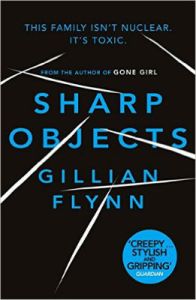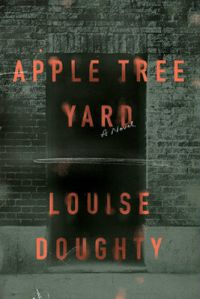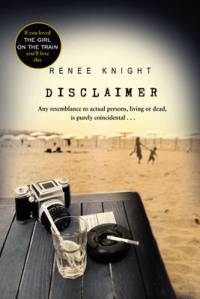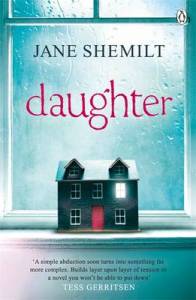Yes, I read a lot. But I read a lot of the same stuff. 90% of what I read could be loosely termed “literary fiction”, with the other 10% as my beloved crime thrillers. I know it’s my own failing rather than any author’s, but I find fiction set in any kind of alternate universe extremely difficult to enjoy. Unless I could really believe in something happening and really relate to it or judge it by the world I live in and the people I have encountered, I just don’t enjoy it. This extends to authors I otherwise adore: Kazuo Ishiguro is hands down my favourite author. Until this year I had read every one of his novels except The Unconsoled (hadn’t got around to it yet, is on my to-read list). This year, that went up to every one but two, and will remain an incomplete list forever because I just know I’ll probably never read The Buried Giant. The combination of historical and fantasy was more than enough to put me off. Again, I reiterate: this is my problem, not Kazuo Ishiguro’s. But I can’t really get past it.
There are, however, a very select few books that have that made it through my Very Serious Fiction filter. Upon reflection, they’re all characterised by being set pretty much in the real world but with a key difference to what our world is actually like. The landscapes they portray are real places. The situations the characters are navigating are fundamentally human ones. The science isn’t at all central to the progression of the plot. I never feel distracted from the Human Story by the sci fi/dystopia elements, and I think that’s what my problem is with most sci fi/dystopia/fantasy novels.
Anyway, here are a few sci fi novels I truly love.
Yep, it’s ya boy Kazuo again. This is one of my all-time favourite novels of any genre by anyone in the world. It disturbed me in a way few books have, creating a persistent beast that burrows deep inside me and resides in the saddest, darkest place. The title doesn’t give anything away, doesn’t hint at the plot, the themes or the darkness. It could be a high-brow romance novel. But it isn’t. Imagine a future where human cloning is not only possible on a large scale but ethically permissable. Never Let Me Go is narrated by Kathy, a teenager at a boarding school in the countryside where students are treated well, encouraged to express themselves via art and creativity, and most importantly of all- kept healthy. Their physical health is paramount because they are clones, ‘born’ with the express purpose of having their organs harvested to donate. You could ask endless questions and try to pick endless holes in the premise, but you just don’t. You focus instead on the unbelievable pain of people who are born with the express purpose of dying, who see death as a career path. When one of her best friends hears that organ-harvesting can be ‘deferred’ if you fall in love or create particularly compelling art, the levels of hope and delusion and desperation that motivate their already limited lives become even more painful. It’s one of the most original and haunting books I’ve ever read.
If you think you don’t need to read Under the Skin because you saw the film, think again. I’ve never seen a film so different to its source material, and I would be interested to hear if anyone who’s read and seen Under the Skin can think of one. While in the film the whole plot was ‘alien assumes human form travels the roads of Scotland in search of men’, the motivation behind that is fully fleshed out in the book (pardon the pun). The novel reads like extremely elaborate pro-vegetarian propaganda: alien assumes human form, travels the roads of Scotland in search of men to paralyse with a drug, kidnap, return to a farm where she lives with other aliens, fatten up and eventually kill to harvest their meat and send back to their home planet where it’s consumed as a delicacy. It’s essentially about a human foie gras industry perpetrated by aliens who can undergo elaborate cosmetic surgery to look like humans. It is, unsurprisingly, dark and weird. It’s a wild concept executed so seamlessly and flawlessly that, much like Never Let Me Go, you don’t question the premise and just enjoy the outrageous ride. Even though Isserley, the protagonist, is an alien, she appears to the male hitchhikers in a human female form, exposing her to all the dangers that actual human females are exposed to. This, much like in the film, adds an intensely gendered dimension that makes the novel even more disconcerting. Michel Faber’s writing is so sensitive, nuanced, understated and satisfying that it makes a wild tale about a murderous alien feel intimate, human and compelling.
I loved Station Eleven. I saw a lot of people talking about this book, thought “oooh gonna get involved” then my enthusiasm instantly evaporated when I discovered there was some kind of sci fi/dystopia angle. I’m really glad I read it anyway, because it falls so perfectly into the category I enjoy: yes, sci fi, but where that element is so horribly believable it’s more about human experience and reaction than anything else. Especially post-Ebola pandemic, I can easily believe that a virus could instantly wipe out almost everyone on earth and that civilisation as we know it could come to an end. What, then, becomes of the people who survive? What does survival mean? How do you reconstruct a society when there are both people who lived through the old world and those born into the new world who could never imagine electricity, internet, consumerism? And not just technology but culture. After the end of the world as we know it, does art, culture, theatre matter less or more than ever? The Station Eleven is chilling, thought-provoking and hopeful.
I am sure a lot of people will want to recommend Margaret Atwood. I read The Handmaid’s Tale when I was too young to appreciate it and am going to re-read soon, but I read Oryx and Crake to please someone I was dating, and really did not care about it at all. But, based on this post, if there are any other novels along these lines you care to recommend, I would like to hear about them.
The one genre I will almost certainly never be able to enjoy in any way is fantasy, but if you think you can recommend me something sufficiently outstanding then I’m willing to challenge myself, so please do hit me up!


